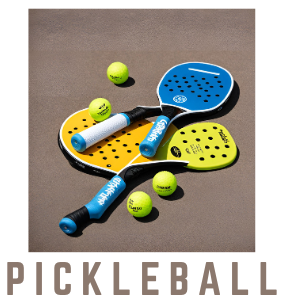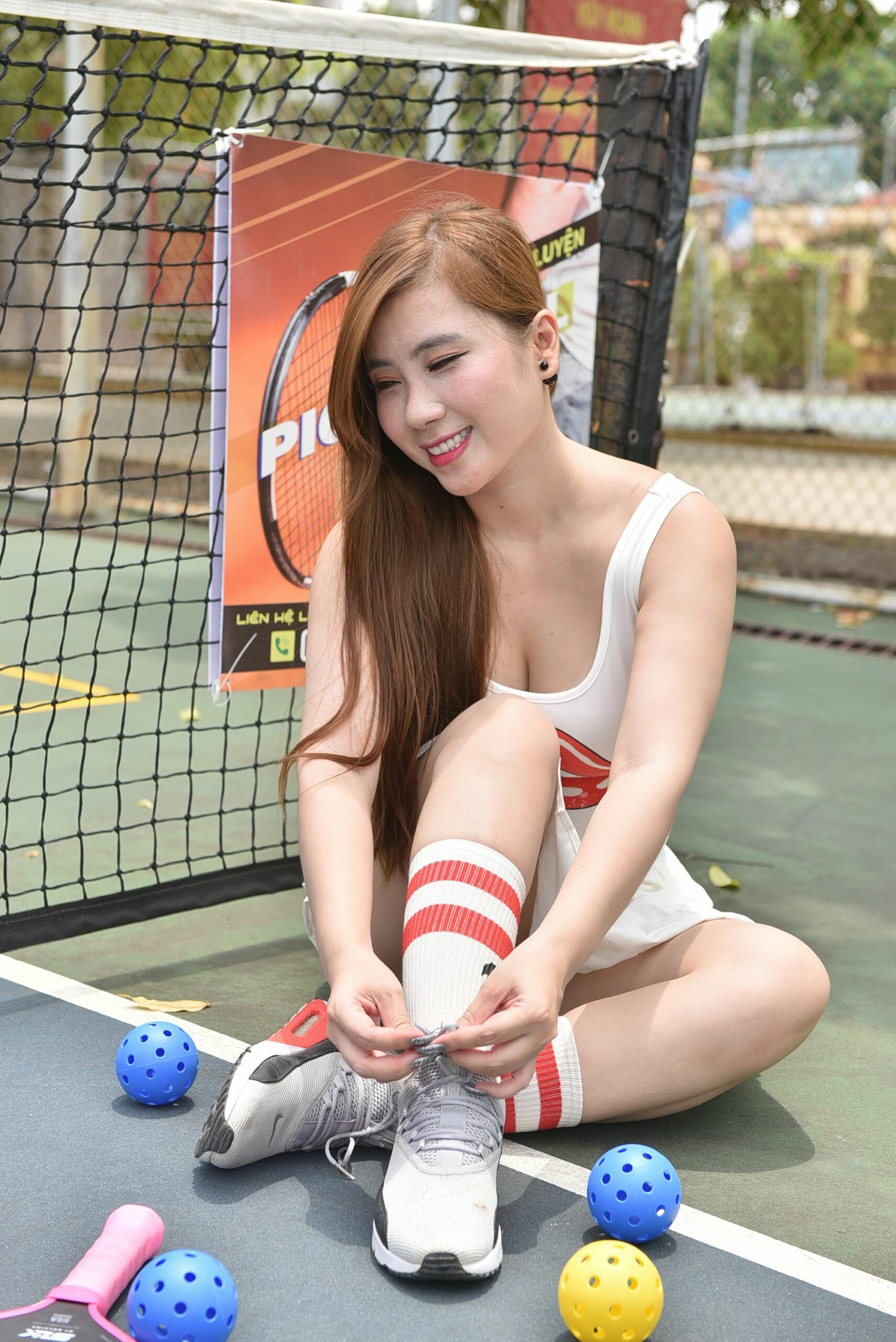What Is Pickleball Slang?
Do you feel like you’re always hearing pickleball players use terms you don’t understand? Don’t worry, you’re not alone! Pickleball has its own unique slang that can sometimes be confusing for newcomers. In this article, we’ll break down some common pickleball slang terms so you can feel more confident on the court.
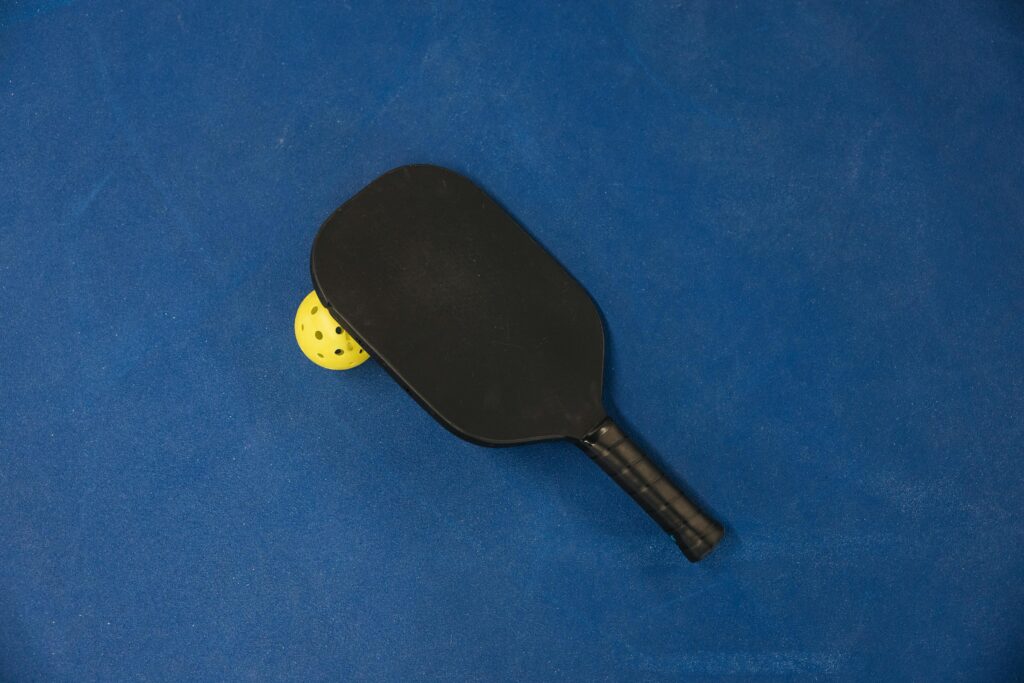
The Basics: Understanding Pickleball Slang
Before we dive into specific terms, let’s cover a few basics. Pickleball slang often includes shortened versions or nicknames for common words used during gameplay. These terms are meant to make communication quicker and more efficient on the court.
“Dinking”
One of the most frequently used terms in pickleball slang is “dinking.” This refers to a soft shot that barely clears the net and is designed to stay low and close to the net on your opponent’s side. Dinking is an essential skill in pickleball, and being able to execute a successful dink can give you a significant advantage during a game.
“Kitchen”
No, we’re not talking about cooking! In pickleball, the “kitchen” refers to the non-volley zone, which is the seven-foot area on either side of the net. Players are not allowed to hit the ball while standing in the kitchen unless the ball bounces first. It’s crucial to understand the concept of the kitchen to avoid making mistakes during gameplay.
“Onion Ball”
Have you ever heard someone refer to an “onion ball” during a pickleball match? This term is used to describe a shot that has a lot of spin on it. The spin causes the ball to bounce unpredictably, making it challenging for your opponent to return. If you hear your opponent call your shot an “onion ball,” you’ll know you’ve executed an effective spin shot.
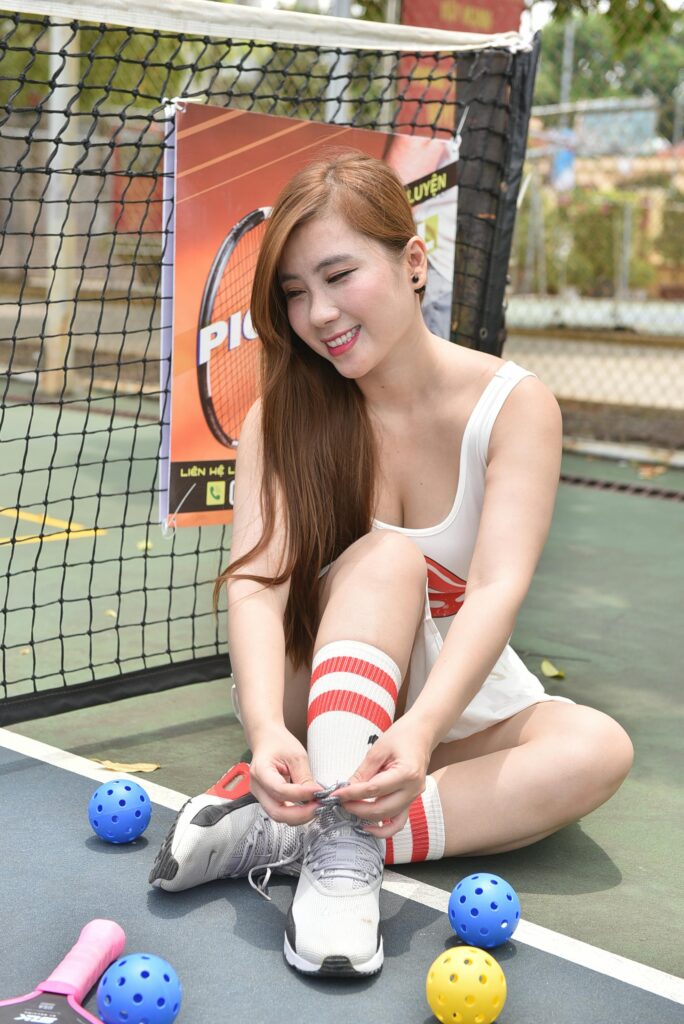
“Bangers”
In pickleball slang, “bangers” are players who prefer to hit hard shots with power and speed. These players rely on their strength to overpower their opponents and may not focus as much on finesse or strategy. If you find yourself playing against a “banger,” be prepared to react quickly and defend against their powerful shots.
“Golden Hands”
On the opposite end of the spectrum are players known as “golden hands.” These individuals have exceptional touch and finesse when it comes to hitting shots. They can place the ball precisely where they want it, making it difficult for their opponents to anticipate their next move. If you’re playing against someone with “golden hands,” be prepared for a strategic and precise game.
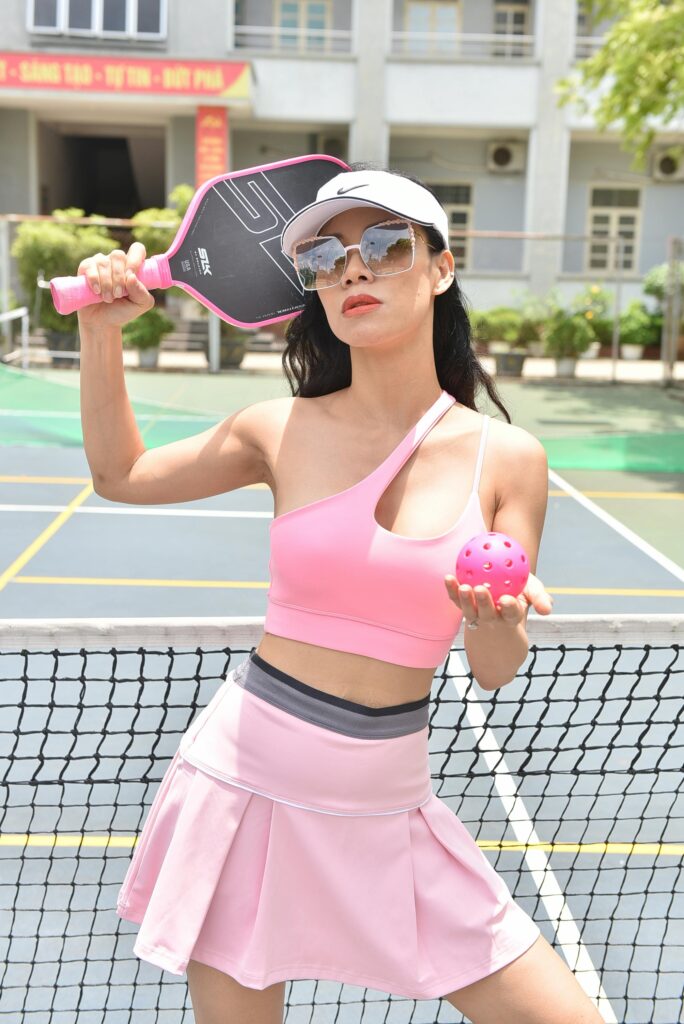
“Fishing”
When a player is repeatedly hitting shots that force their opponent to reach further and further away from their body, it’s often referred to as “fishing” in pickleball slang. This strategy can be effective in wearing down your opponent and creating opportunities for you to capitalize on their mistakes. If you notice your opponent using the fishing technique, be prepared to stay patient and focused during the rally.
“Third Shot Drop”
The “third shot drop” is a vital strategy in pickleball that involves hitting a soft, controlled shot over the net on your third shot. This shot is designed to land softly in your opponent’s non-volley zone, also known as the kitchen, forcing them to hit the ball up, giving you the opportunity to take control of the rally. Mastering the third shot drop can significantly improve your gameplay and help you win more points.
“Side Out”
Have you ever heard someone shout “side out” during a pickleball match? This term is used to signal the end of a team’s serving turn. In pickleball, a side out occurs when the serving team fails to score a point, resulting in their opponents gaining the serve. Understanding when a side out occurs is essential for maintaining a fair and competitive game.
“Stacking”
In pickleball doubles matches, “stacking” is a strategy used by teams to position themselves in a way that maximizes their strengths and minimizes their weaknesses. Stacking typically involves positioning the stronger player on one side of the court to take advantage of their skills. If you notice your opponents stacking during a match, pay attention to their positioning and adjust your strategy accordingly.
“Dink and Dunk”
The “dink and dunk” strategy in pickleball involves hitting short, soft shots (dinks) followed by quick, aggressive shots (dunks) to keep your opponents off balance. This strategy is effective in forcing errors from your opponents and creating opportunities for winners. If you’re looking to add more variety to your gameplay, mastering the dink and dunk strategy can help you become a more well-rounded player.
“Chicken Wing”
A “chicken wing” in pickleball refers to a defensive shot where a player’s elbow is sticking out instead of being close to their body. This defensive technique is not ideal as it can limit a player’s range of motion and make it difficult to hit an effective shot. If you find yourself using a chicken wing during a match, focus on keeping your elbow close to your body to improve your defensive capabilities.
Conclusion
Congratulations! You’ve now learned some essential pickleball slang terms that will help you navigate the court with confidence. By understanding these terms and incorporating them into your gameplay, you’ll be better equipped to communicate with your fellow players and execute strategies effectively. Keep practicing, stay strategic, and have fun on the pickleball court!
